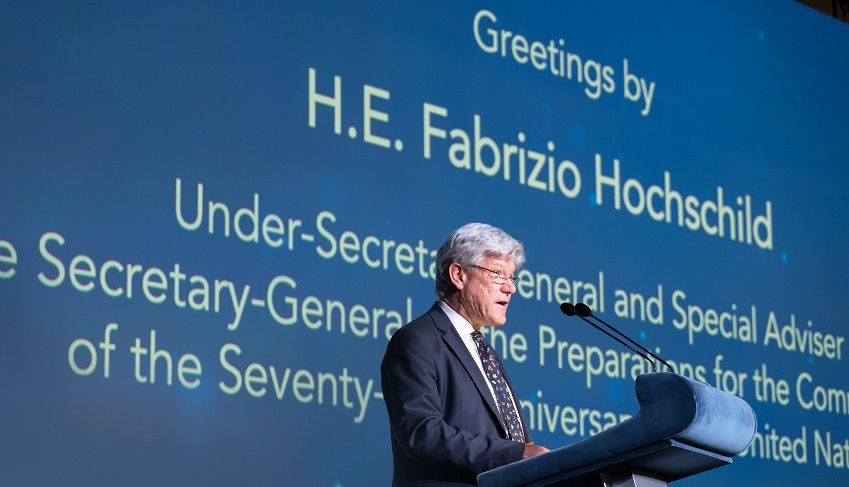Senior Minister Teo warns of “contestation for dominance” as he calls for cyber partnerships
By Amit Roy Choudhury
Singapore’s Senior Minister and Coordinating Minister for National Security, Teo Chee Hean, shares key cybersecurity challenges facing the world at GovWare 2019.

Delivering his keynote address, the Senior Minister set out two challenges facing the world. First, there is a “contestation for digital dominance” shape the direction of norms and rules in the digital space. This could affect millions who are benefiting from the growth in digital convenience and connectivity.
Second, there is a rise in cyber attacks, which are an increasing risk given the rise of emerging technologies like fifth generation mobile telephony (5G), the Minister added.
Teo warned of global cyber space fracturing, with all of using losing out as a result. “When we view the two challenges as a national zero-sum game where one side wins and the other loses, the most likely outcome is that nobody wins,” he noted in his speech.
Offering a solution to this conundrum, the Minister noted that there was a need to “build more bridges and avenues for collaboration”.
“Difficult as it is, we need more dialogue and cooperation among governments and the private sector to help us find better solutions to build a shared future, deal with sophisticated cyber threats, and strengthen trust and confidence in the digital systems that we have come to depend upon,” he said.
Trust being undermined

Agreeing with the Senior Minister, Fabrizio Hochschild, UN Under Secretary General and Special Adviser to the Secretary General, stressed on the point that trust, which is critical to maintenance of international relations, is being undermined by many factors.
Geopolitical rivalry, trade disputes, uncertainty with regards to climate change and competition around 5G networks and AI (artificial intelligence) systems are fuelling distrust as is the growing number of data breaches and cyber-attacks, Hochschild noted.
“The erosion of trust encourages states to put up larger barriers in cyber space and take a hostile posture in the digital realm. The potentially dangerous consequences that this entails calls for a much more energetic response.”
He added that the UN Secretary General, António Guterres, has expressed his fear to the heads of states of the great rupture between the super powers with several competing trade and cyber systems coming up. “This would mean the fragmentation of the current international order. Distrust is the great driver of this rupture,” he added.
Protecting IoT devices

Dr Janil Puthucheary, Senior Minister of State in Singapore’s Ministry of Communications and Information, noted that with the number of IoT (Internet of Things) devices estimated to reach 20 billion globally by 2020, it is certain that hackers will target these devices and carry out complex attacks. Companies need to do more to assure customers that their devices have been assessed to be trustworthy from a cybersecurity perspective, he added.
The Minister noted that Common Criteria, or CC, is the de facto standard for IT security product certification around the world. He added that Singapore “is honoured” to be recognised as a CC authorising nation and “this reinforces our strong advocacy for security-by-design for IT products”.
The CSA and Nanyang Technological University (NTU) have signed an MoA (Memorandum of Agreement) to establish the National Integrated Centre for Evaluation (NICE). This will be a one-stop facility for product testing and evaluation. The centre will develop competencies and evaluation techniques, build a pipeline of professional practitioners and community of practice, and seed a sustainable industry ecosystem for product evaluation and certification in Singapore.
Announcements
The first day of the SICW saw a number of major announcements.
Among them was that the CCCY (Coordinating Committee for Cybersecurity) formed under the Singapore Standards Council. It will publish the Cybersecurity Standards Roadmap next year to support Singapore’s digital transformation efforts. The roadmap will be anchored on three key pillars: Building a Resilient Infrastructure; Creating a Safer Cyberspace; and Developing a Vibrant Cybersecurity Ecosystem. The three pillars are aligned with the Cybersecurity Strategy developed by CSA.
It was also announced that the CSA has developed an OT (Operational Technology) Cybersecurity Masterplan as part of its efforts to enhance the security and resilience of Singapore’s critical sectors in delivering essential services; improve cross-sector response to mitigate cyber threats in the OT environment and strengthen partnerships with industry and stakeholders.
The Government Technology Agency and the CSA announced the joint conclusion of their second Government Bug Bounty Programme. This encouraged citizen hackers, researchers and white hats to help find government vulnerabilities in internet-facing ICT systems with high touchpoints. They found 31 vulnerabilities, with total rewards of US$25,950 paid as a reward.
Minister Teo launched the Masterplan which outlines key initiatives spanning the areas of people, process and technology to uplift the cybersecurity posture of Singapore’s CII owners and organisations that operate OT systems.
Amit Roy Choudhury, a media consultant, and senior journalist, writes about technology for GovInsider.